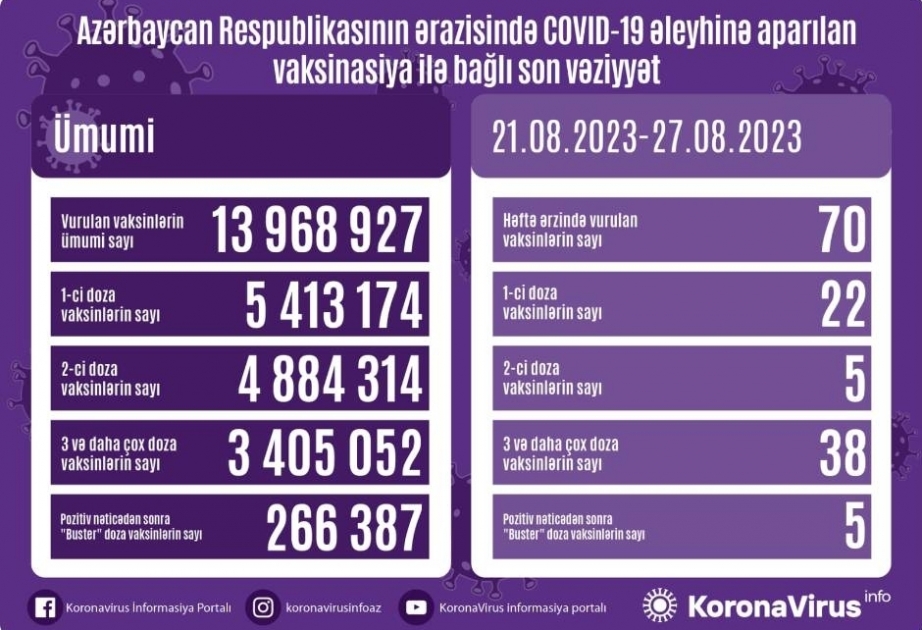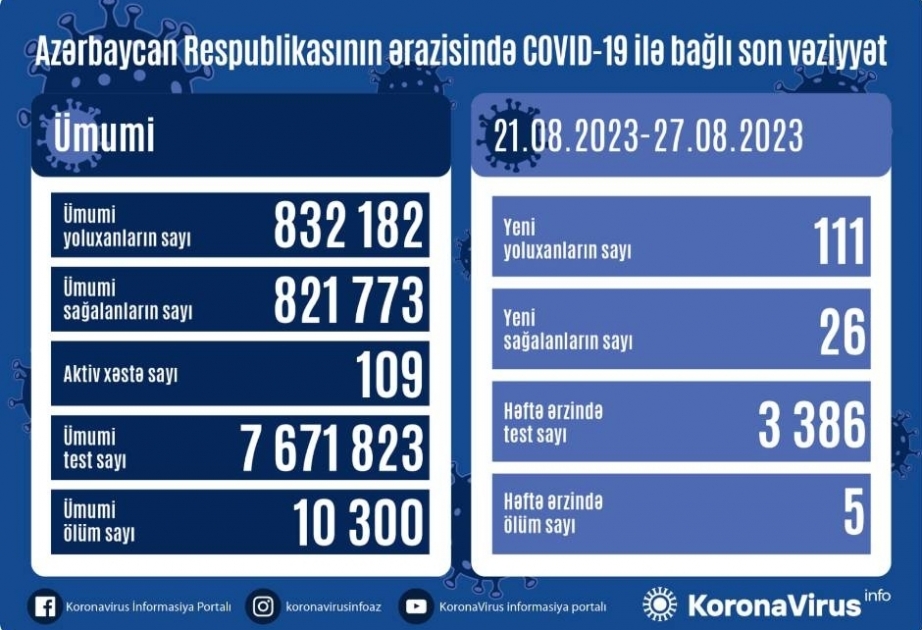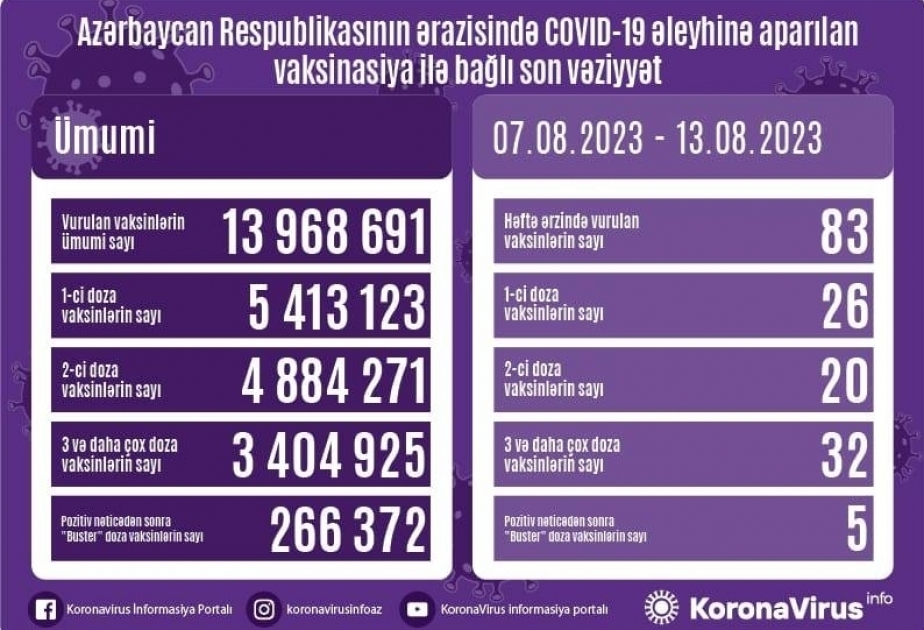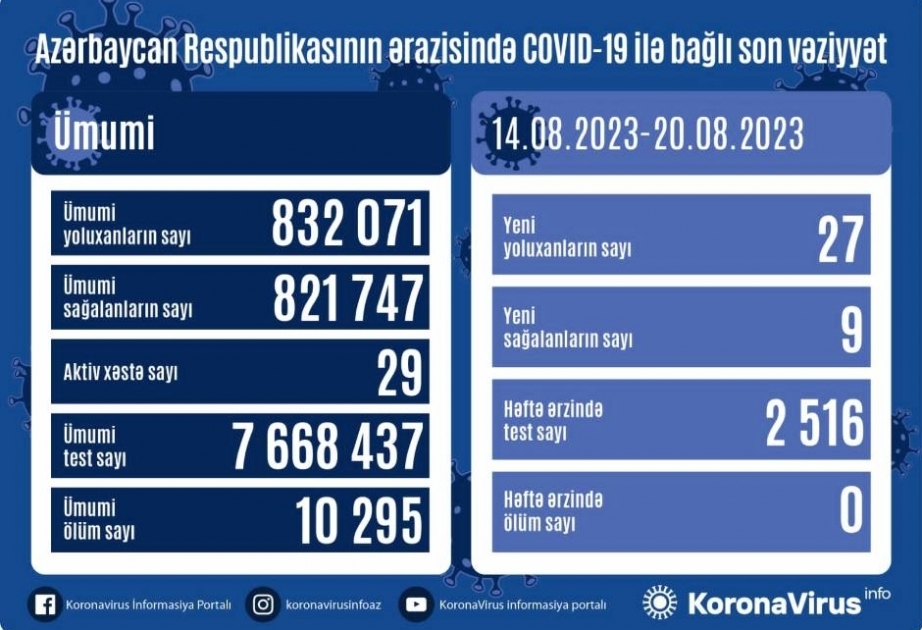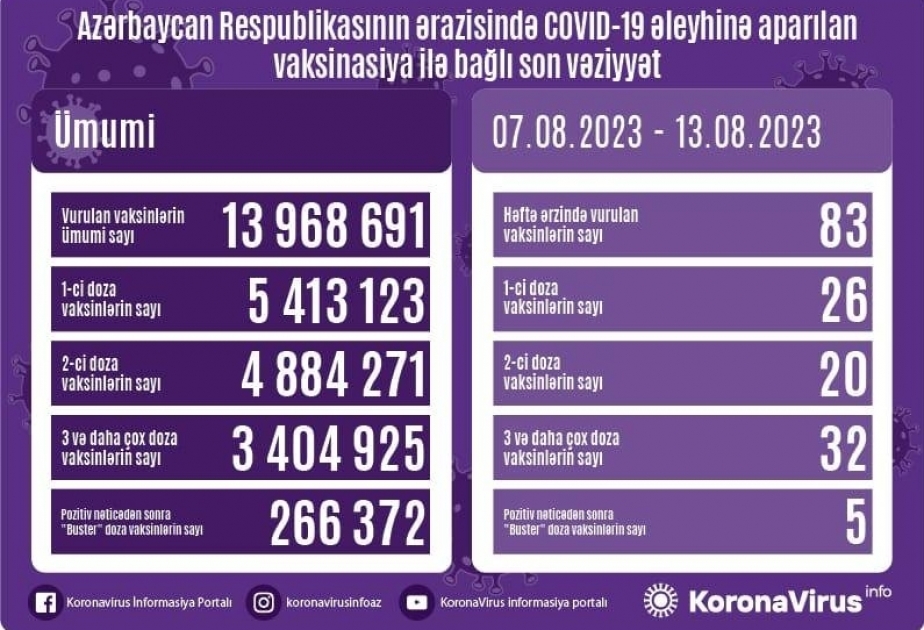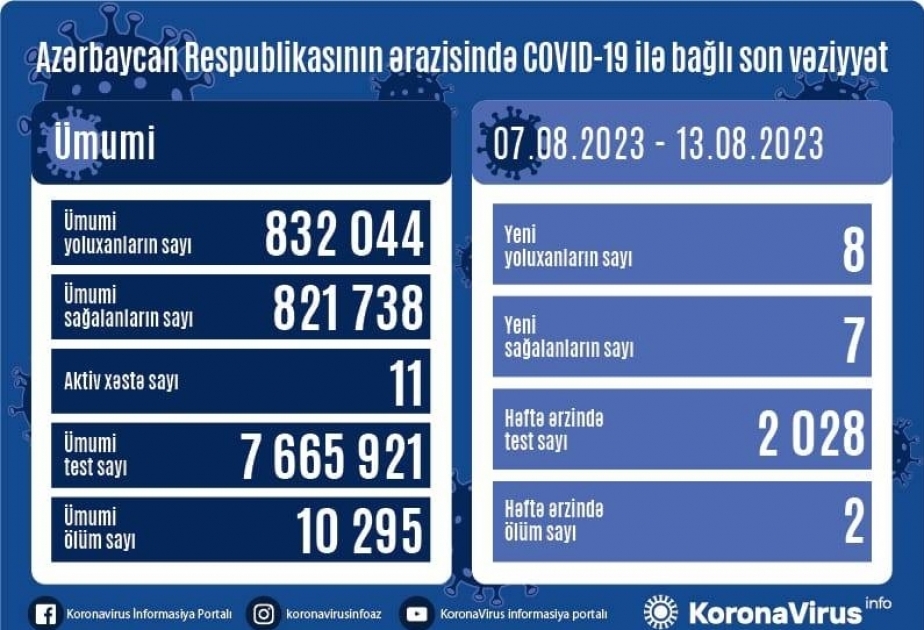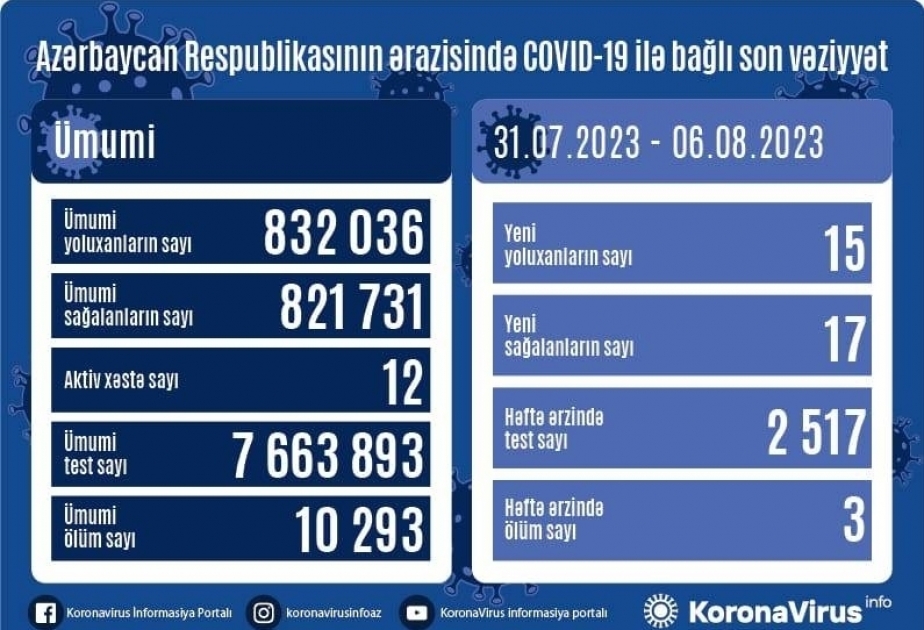SOCIETY
WHO: Since beginning of 2023, at least 25 countries have reported cholera cases
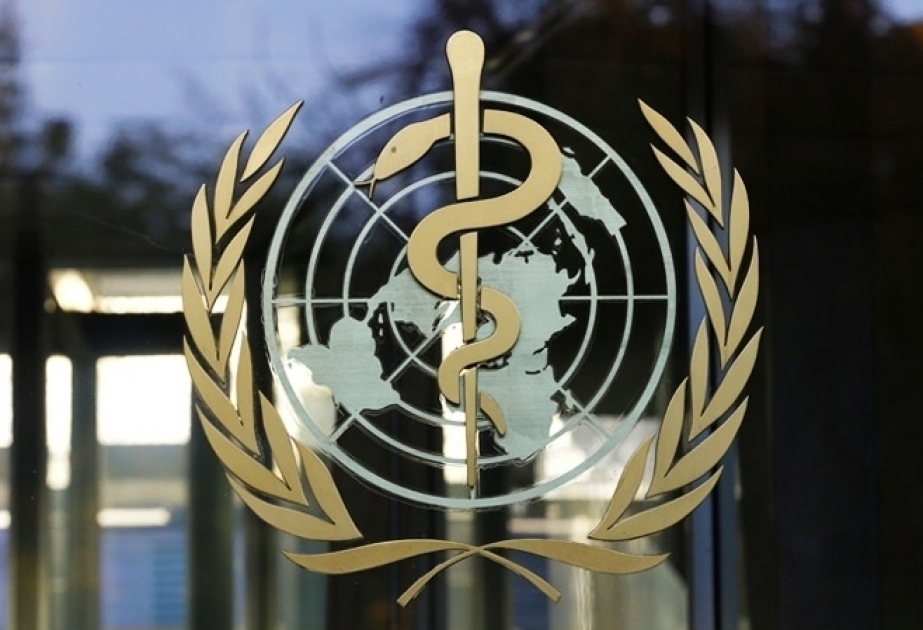
Baku, August 5, AZERTAC
Since the beginning of the year and as of 15 July 2023, at least 25 countries have reported cholera cases, said an external situation report on multi-country outbreak of cholera published by World Health Organization (WHO) on Friday.
According to WHO, during the same period in 2022, 16 countries reported cases. With reference to historical transmission patterns and seasonality, countries in West Africa have entered the high transmission period with the rainy season that spans from May to October. On the other hand, heavily affected countries such as Mozambique are in preparedness mode for the upcoming rainy season in September, while still managing ongoing outbreaks.
In July 2023, World Meteorological Organization (WMO) declared an onset of El Niño conditions in the tropical Pacific for the first time in seven years. WMO forecasts there is a 90% of probability of the El Niño event continuing during the second half of 2023 (WMO, July 2023).1 The El Niño conditions are highly likely to alter the dynamics of cholera outbreaks as increased rainfall, flooding, hurricanes, cyclones, and drought can reduce access to clean water, sanitation facilities, and limited healthcare resources. Warmer water temperature associated with the El Niño conditions can also favour the growth and proliferation of Vibrio cholerae in aquatic environments, which can increase the likelihood of cholera outbreaks. Therefore, strengthened preparedness will be required over coming months. The mortality associated with these outbreaks is of particular concern. Many countries continue to report higher Case Fatality Ratios (CFR) than in previous years. The average cholera CFR reported globally in 2021 was 1.9% (2.9% in Africa), a significant increase above the targeted rate (<1%) and the highest recorded in over a decade. The global annual report for 2022 will be consolidated in the coming months.
The WHO African Region remains the most affected region with 14 countries reporting cholera cases since the beginning of the year. The outbreaks in many Southeast African countries, including Burundi, Malawi, Mozambique, and South Africa appear to have stabilized in recent weeks. In the Democratic Republic of the Congo, over 900 cases are reported each week with an upward trend observed in some provinces such as North-Kivu and Tanganyika.
In the Horn of Africa, the major region of concern remains the so-called ‘Mandera triangle’, where the borders of Ethiopia, Kenya, and Somalia meet. While the overall epidemiological situation has been plateauing, around 1000 cases are reported each week across the three affected countries in the region with further spreads in new areas. Ongoing security concerns and forced displacement remain the major challenges in the response operations.
WHO continues to work with partners at global, regional and country level to support Member States in outbreak response activities.
Cholera is an acute diarrhoeal infection caused by ingestion of food or water contaminated with the bacterium Vibrio cholerae. Cholera remains a global threat to public health and an indicator of inequity and lack of social development.
